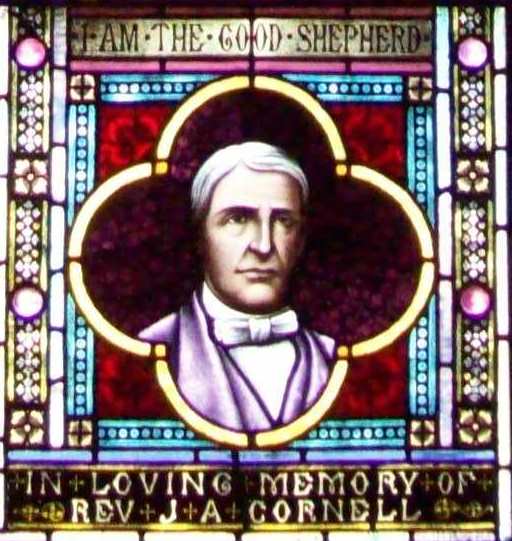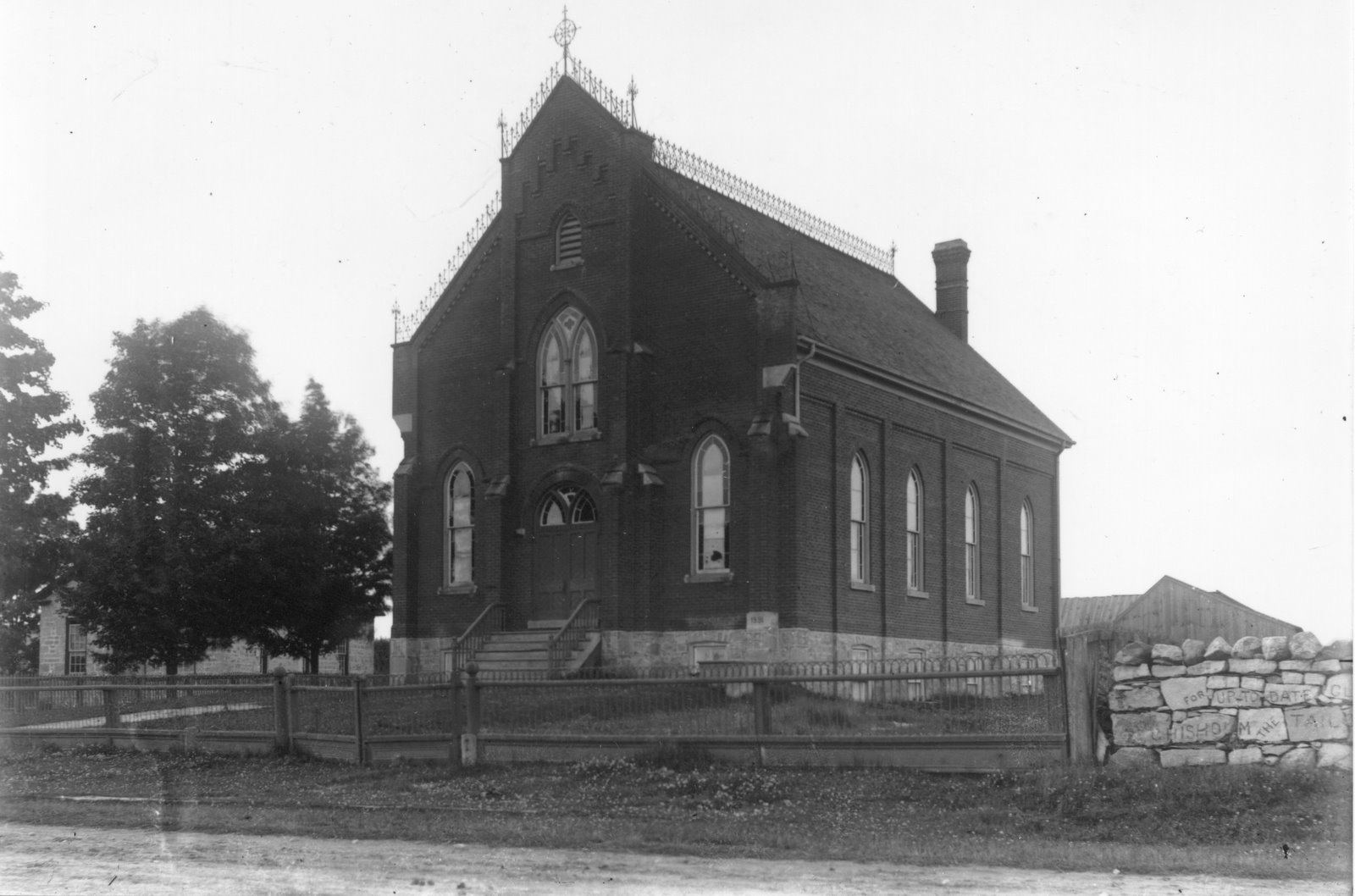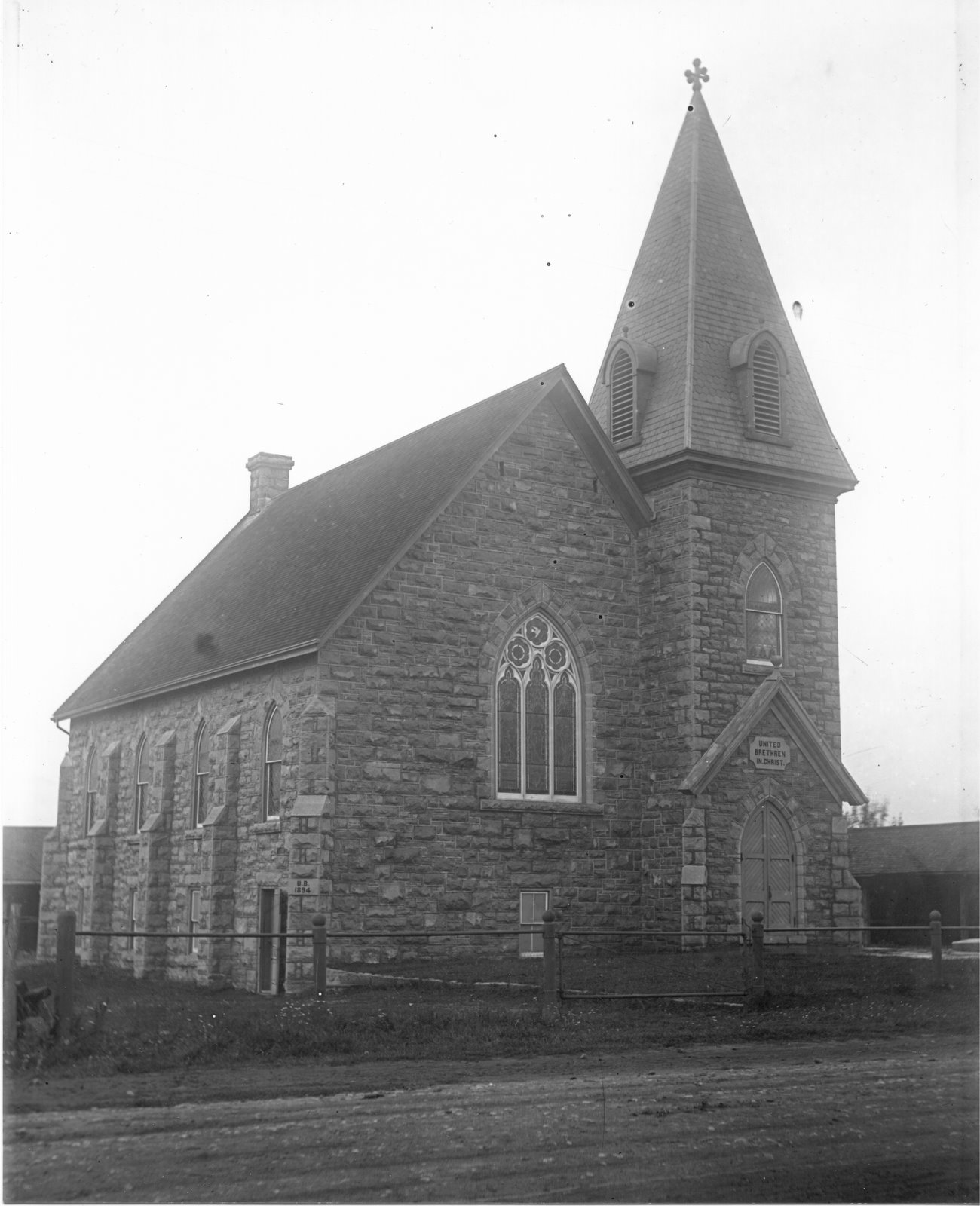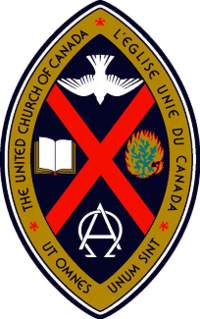A Brief History
The
earliest
history of Sheffield United Church begins with the story
of the man who founded the village of Sheffield, Rev. John
A. Cornell. Cornell grew up in Dutchess County and
Columbia County, New York, but at the age of 18 migrated
to Upper Canada. He came first to Beverly Township (near
Christie's Corners), and then Waterloo Township. In 1809
he relocated along what is now Highway 8 to Beverly
Township, to the heart of the future village of Sheffield.

Cornell
started
out as a pioneer farmer, but leading up to the year
1812, he underwent a dramatic religious awakening, and
in 1812 became an independent preacher. He held church
services in his home and barn, and preached in many
locations in Beverly Township, Waterloo Township, and
beyond. In 1834, the first church building was
constructed at the present site of the Sheffield United
Church.

Methodist
preachers
had been active in Upper Canada since the 1780s, and a
following of
the
British
Wesleyan branch had developed in the Sheffield area,
which was serviced by preachers based from St. George.
In 1846, the Sheffield Methodist congregation built a
stone church just west of the village. In 1891,
they built a larger, red brick building in the village.
In 1854, John A. Cornell advised his independent congregation at Sheffield to join the United Brethren in Christ denomination. After 42 years as a preacher, Cornell was nearing the end of his life and wished to see his congregation continue under the guidance of a denomination with similar doctrines. When his congregation accepted, they became the first United Brethren church in Canada. In 1894, the United Brethren congregation built a new church of stone (the present United Church). In 1916, this congregation joined the Presbyterian Church of Canada.

In 1925,
both the Methodists and Presbyterians in Sheffield voted
to join with each other in the new United Church of Canada
(with the exception of a large minority of the Sheffield
Presbyterians). The new United Church congregation chose
to worship in the stone church, and the Methodist brick
church was eventually sold to the Presbyterian group.
